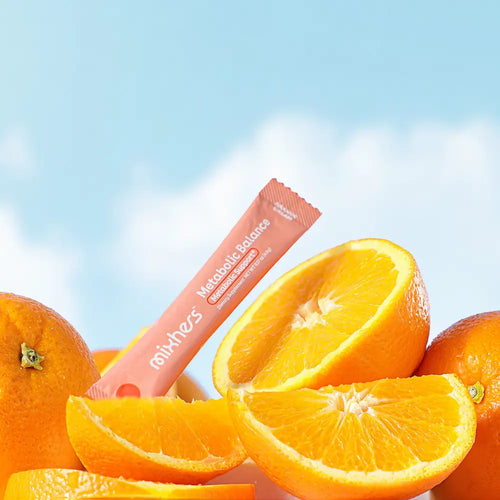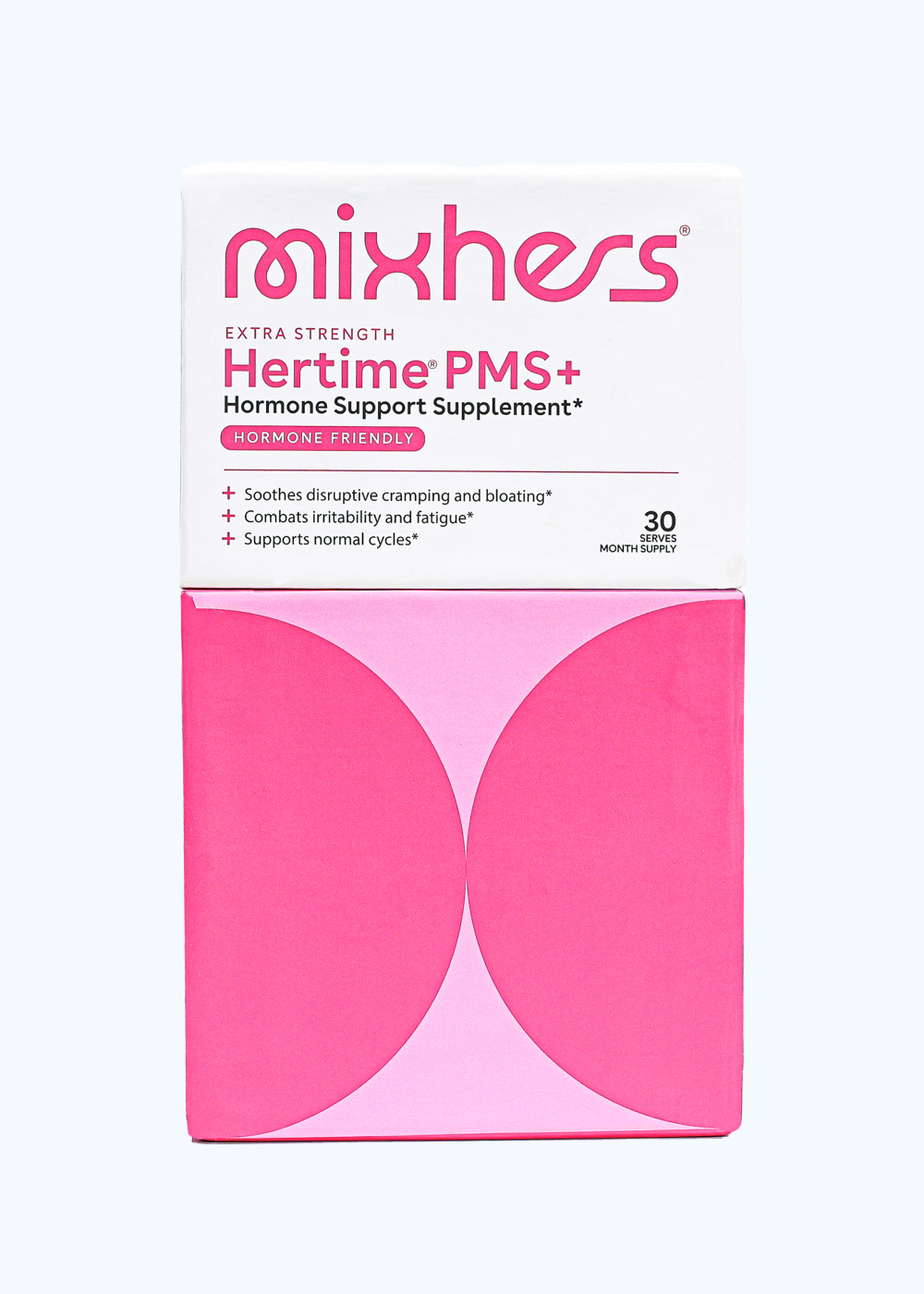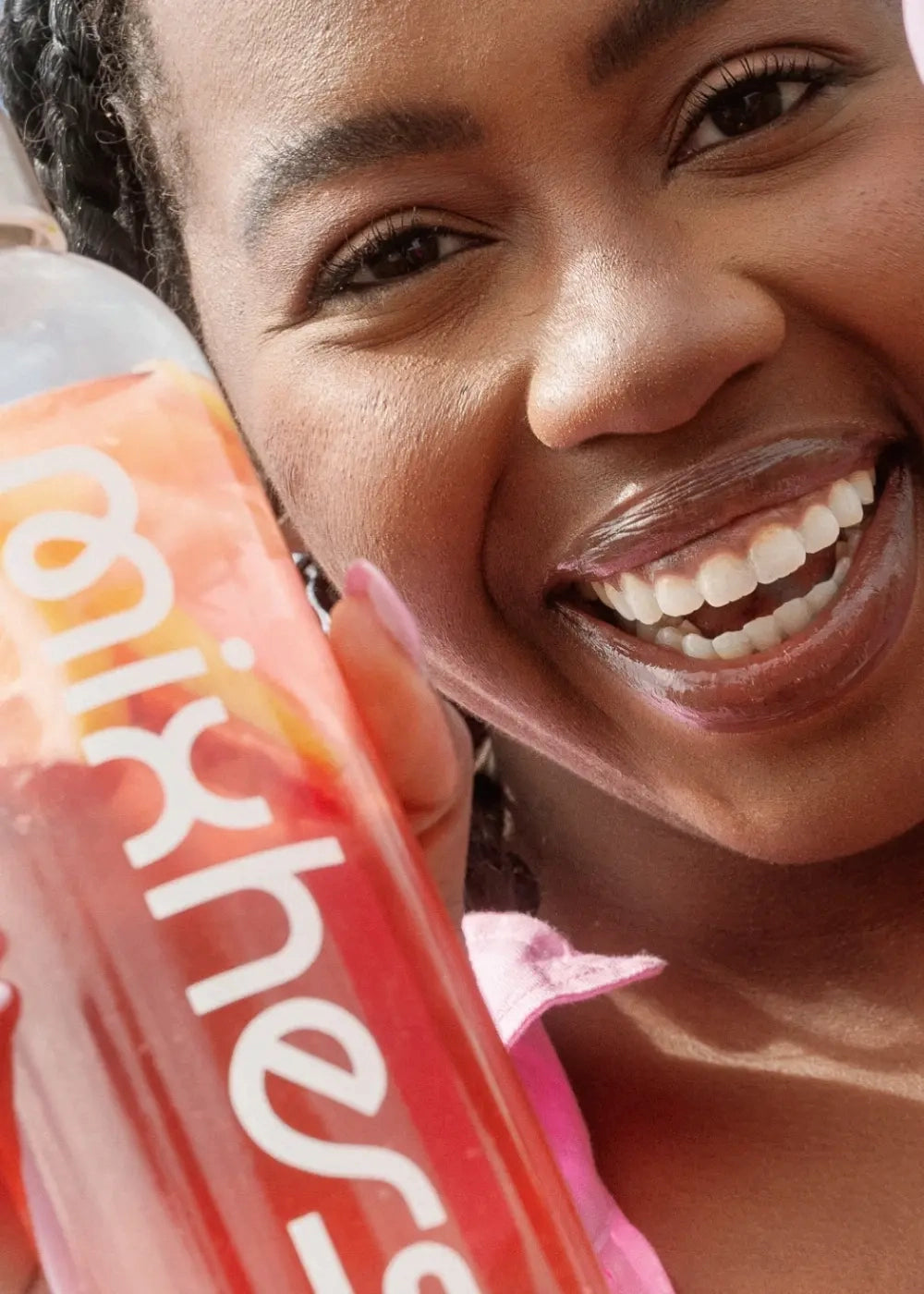What Are Electrolyte Drinks and Should You Be Drinking Them?
Do you frequently get muscle cramps during your workouts or even when you’re just lounging around? Or do you get headaches and heart palpitations a lot? If so, you could be dealing with an electrolyte imbalance.
An electrolyte imbalance occurs when one or more electrolytes in the body rise too high or fall too low outside the normal range. Our bodies are generally very good at maintaining balanced electrolyte levels, but they can only do so much when not adequately hydrated.
When we drink too little (especially during and after exercise), we’re more likely to experience electrolyte imbalance. Surprisingly, though, drinking too much water can also cause an electrolyte imbalance. Confusing, right? But you should know that it’s pretty challenging to drink a dangerous amount of water. In fact, most of us are chronically dehydrated and struggle even to meet minimum water intake recommendations each day.
Fortunately, there are electrolyte drinks that can help restore balance in our bodies. Here’s what you should know about electrolyte replacement drinks and how they can benefit your health (or harm it, depending on the type you consume).
What Is an Electrolyte Drink?
Electrolytes are essential minerals with an electrical charge that are found within your body. They include:
- Sodium
- Potassium
- Calcium
- Phosphate
- Chloride
- Bicarbonate
- Magnesium
Each of these minerals performs specific functions in your body. For example, some aid with muscle contraction while others conduct nerve impulses. Others help regulate the pH levels in your body and assist in keeping you hydrated. In short, you need the right balance of electrolytes to maintain a properly functioning body.
An electrolyte drink is a beverage that contains water and electrolytes (usually sodium and potassium). Unfortunately, most commercial electrolyte drinks are also chock-full of sugar, artificial colorings, and artificial flavors. Yikes!
If you don’t believe it, head down to your local grocery store and take a gander at the nutrition labels on major electrolyte drink brands. You might be surprised by what you see.
The good news is that you don’t have to pump your body full of sugar and artificial ingredients to boost your hydration. There are better and healthier rehydration drink options out there if you know where to look. We’ll talk more about that later in this guide.
Benefits of Electrolyte Drinks
OK, here’s the deal. If you’re looking for a way to replenish electrolytes after a workout, regular water will probably be sufficient most of the time. This is because tap water contains small amounts of certain electrolytes (such as sodium, magnesium, and calcium). But, it has little to no potassium.
A good rule of thumb is the following: if you work out for less than an hour, plain water is probably sufficient for rehydration. But if you work out longer than an hour, if it’s a hot day, or if you sweat a lot, regular H20 may not be enough on its own. So if you’re in any danger of dehydration, you should drink a healthy electrolyte drink that contains the minerals your body needs to function optimally.
Electrolyte drinks can offer a variety of benefits. They include:
- Muscle function support
- Nervous system support
- pH balance
- Optimal hydration
- Heatstroke prevention
- Rehydration during illness
In addition to these awesome benefits, a well-timed electrolyte beverage may also enhance your performance during exercise. That’s why many sports organizations recommend athletes take some sort of electrolyte beverage before, throughout, and during exercise to maintain electrolyte balance.
Signs of Electrolyte Imbalance
If your electrolytes become imbalanced, your life could be at risk. Your body simply can’t survive long if it’s severely dehydrated. Here are some symptoms that may indicate you have an electrolyte imbalance:
- Fatigue
- Trembling
- Dizziness and/or nausea (without vomiting)
- Lack of perspiration
- Decreased urine output and/or dark urine
- Aching or stiff joints
- Dry skin
- Muscle weakness
- Constipation
- Dry mouth (and unpleasant breath)
If you notice these symptoms in yourself, getting hydrated is the most important thing you can do. Herhydration is one of the quickest and most effective ways to boost hydration while replenishing low electrolytes. Simply mix a packet into a glass of water to benefit from a variety of essential electrolytes, energizing complex carbohydrates, and highly nourishing green coconut water.
What Causes Electrolyte Imbalances
There are a lot of things that can cause electrolyte imbalances in the body. Here are a few.
- Poor diet: Consuming food with little to no nutritional content won’t replenish electrolytes in the body. Most of us get enough sodium from our diets, but if our other electrolytes are not balanced, we’ll start to develop unpleasant symptoms.
- Diarrhea and vomiting: This isn’t a fun subject to talk about, but anytime we get sick and lose a lot of fluids, we need to focus on rehydrating with water and electrolytes. Getting sick can quickly lead to depletion of our electrolyte stores, which can become life-threatening if we don’t resolve the issue right away.
- Diabetes: According to research, diabetes mellitus patients are more likely to have low levels of phosphate, magnesium, and potassium. Anyone with diabetes needs to pay extra attention to symptoms of electrolyte imbalance.
- Kidney Disease: Since the kidneys help balance electrolytes and maintain a good pH balance in the body, they may need a little help if they’re impacted by disease. Supplementing with electrolyte drinks is important for anyone with kidney disease (under a doctor’s direction, of course).
- Sweating: One of the most common causes of electrolyte imbalance is excessive sweating. This can happen because of an intense workout or simply because the weather is really hot. If you engage in more than 60 minutes of activity with intense sweating, grab an electrolyte drink to aid in hydration and recovery.
- Chemotherapy: Unfortunately, chemotherapy treatments can lead to electrolyte disorders. If you’re currently undergoing chemo, take special care to increase your hydration and balance your electrolytes as best you can.
- Age: Did you know you’re more likely to experience electrolyte imbalances as you age? So as the number of candles on your birthday cake rises, so should your intake of hydrating drinks.
These are just a few of the most common causes of electrolyte imbalances. If you’re dealing with any of these situations, weigh your rehydration options carefully to ensure you’re getting the biggest benefit without the drawbacks of unhealthy added ingredients.
Healthy vs. Unhealthy Choices
Just because something is marketed as good for you doesn’t mean it really is. Take cigarette ads from the 1930s through the 1950s, for example. Back then, people actually argued about which cigarette brand was the “healthiest” choice!
Today, most companies aren’t blatant enough to market something as healthy when it’s just the opposite. But sugar-filled electrolyte drinks are one exception. So let’s take a minute to talk about each of the common rehydration options people turn to when they’re dehydrated, and fish out the healthy choices from the not-so-healthy choices.
Popular Commercial Electrolyte Drinks
Gatorade and Powerade are two of the most popular brands for electrolyte drinks. Some people consider these drinks “healthy,” yet these brands list sugar as one of the main ingredients (second only to water). Additionally, all or most of the carbohydrate content in these drinks comes from simple sugars.
While simple sugar will provide fleeting energy, it’s not good for the body and will almost inevitably lead to a dreaded “sugar crash.” It can also contribute to dehydration by forcing the kidneys to produce more urine to force the excess sugar out of your body. If you lose enough fluid due to your body pushing the sugar out, your dehydration will become worse, not better!
It’s probably best to say “no” to these unhealthy options and opt for a DIY electrolyte drink, electrolyte-infused water, or a healthy electrolyte beverage without added sugar.
Pedialyte
Pedialyte is an over-the-counter rehydration drink that contains less sugar than other popular “sports” electrolyte drinks. It’s generally used during or after sickness to help replenish the sick person’s electrolyte level.
Pedialyte is recommended for both children and adults and should be taken orally. It’s not designed to be mixed with any other fluids (including milk, water, or juice) because doing so can change the sugar-to-electrolyte ratio of the drink. It’s important to note that Pedialyte is designed to help with mild to moderate dehydration. For severe dehydration, it’s essential to seek medical attention.
Coconut Water
There is a rumor floating around that coconut water is preferred over regular H2O for rehydrating purposes. You’ve probably seen people working out at the gym or running on the track with a bottle of coconut water in their hands.
While coconut water is certainly trendy these days, does it live up to its reputation as a miracle hydrating drink? The answer is…well, yeah. It kinda does.
Coconut water contains a variety of healthy ingredients. In addition to the electrolytes magnesium, potassium, and calcium, it also contains antioxidants (which help keep your body young) and amino acids.
It does not, however, contain very much sodium. So if you drink coconut water by itself after a long and strenuous workout, you may also want to sprinkle a bit of salt on your tongue to boost your sodium level. Or opt for an electrolyte product that contains both coconut water and added sodium for your electrolyte replenishment needs.
Coconut water should never become a replacement for regular water. But when the two are combined to restore electrolytes and hydrate your body, they make a great team.
Salt
Salt is one of the most important minerals for hydration. When you sweat, you lose a lot of salt and need to replace it. Contrary to popular belief, sea salt and table salt have the same nutritional profile, and both contain comparable sodium amounts by weight.
It’s important to understand that salt has a direct impact on blood pressure. Therefore, too much or too little of it can be harmful. That’s why you never want to go overboard in your salt consumption, but only take enough to help you maintain proper sodium balance in your body. This may require you to temporarily increase your salt intake during or after a workout or when you’re sick and losing too many electrolytes.
Baking Soda
Baking soda (also known as sodium bicarbonate) has many surprising uses besides leavening your breads and pastries. From controlling odors to minimizing the pain of insect stings and bites, baking soda is quite the multi-tasker. It turns out you can also use it to rehydrate your body, as long as you do so in moderation!
A single teaspoon of baking soda contains approximately 1,000 mg of sodium. That’s almost half the recommended sodium allowance for an adult per day! So you don’t need much (usually 1/8 teaspoon in 4 oz. of water is sufficient).
Fruit Juice
Some people drink fruit juice as a way to boost hydration. Orange juice and other fruit juice options have high water content and a lot of vitamin C, which is great. But they also contain a lot of sugar (just 8 oz. of orange juice contains around 20 grams of sugar). So you’re getting about the same amount of sugar from your juice as you’d get from a serving of Gatorade. If that doesn’t bother you, then drink away! But if you’re looking for more healthful electrolyte drinks, you may want to walk right on past the fruit juice aisle.
Mineral Water
Mineral water is water taken from a mineral spring and still contains sulfur compounds, salts, and other minerals. It’s a better source of magnesium, calcium, sodium, and potassium than regular water and is a wise choice for boosting hydration.
If you’re looking for ways to boost your daily intake of hydrating electrolytes, mineral water is a great choice. But it may not contain sufficient electrolytes to replenish your lost stores after an extended workout (such as an hour-long hike or a marathon). So consider using mineral water for your daily hydration needs, but supplement with a homemade electrolyte drink or healthy commercial electrolyte product when you need to replace lost electrolytes quickly.
Electrolyte Water
Electrolyte water is regular water that’s been infused with minerals that are electrically charged. It’s designed to help improve hydration and works a lot like sports drinks (but without the high sugar and calories).
Electrolyte water is great for rehydrating after a workout or during illness. If you have difficulty drinking plain water because it’s not flavorful, try infusing yours with slices of fruit or a squeeze of lemon juice.
Herhydration
If you’re looking for a natural electrolyte product free from sugar, preservatives, and artificial ingredients, say hello to Herhydration.
Herhydration is the natural electrolyte drink we’ve all been waiting for (seriously, where has it been all our lives?!) Now that it’s here, we can say goodbye to unhealthy sugar-filled electrolyte drinks and enhance our hydration in a way we can actually feel good about.
Take a look at Herhydration’s supplement facts panel, and you’ll see that this rejuvenating electrolyte powder is formulated with some pretty great ingredients. It contains properly balanced potassium and sodium, green coconut water (which is highly valued for its electrolyte content and its amino acids and antioxidant content), and complex carbohydrates (which are loads better than simple sugars for lasting energy).
But even more impressive than what you see on the label is what you don’t see on the label. You won’t find artificial sweeteners, preservatives, simple sugars, or artificial flavors on the list. And yet, this electrolyte powder tastes amazing! How is that possible, you ask? The answer lies in the natural flavor. The pleasant taste comes from organic fruit and stevia—no need to worry about harmful artificial flavors or dyes.
How Electrolytes Affect Blood Pressure
Electrolytes play an essential role in blood volume maintenance. Sodium and potassium are particularly important for healthy blood pressure levels. When these minerals are out of balance, blood pressure can rise and lead to a variety of unpleasant symptoms, such as shortness of breath and headaches.
Unfortunately, high blood pressure doesn’t always come with symptoms, so you may not even know you have it. That’s why it’s so important to check your blood pressure regularly and make sure your electrolyte levels remain balanced for optimal heart health.
Importance of Electrolytes
Do you find yourself wondering how important electrolytes really are for your health? If you don’t think you need to worry about keeping your electrolyte levels balanced on a hot day or while participating in a 100-mile bike ride, think again!
The electrolytes in your body help you stay healthy, energized, and hydrated. In addition, you need them to perform well athletically and to just survive from day to day.
Fortunately, keeping your electrolytes balanced can be something you look forward to when it tastes as good as Herhydration! Boost your everyday health and athletic performance by mixing a packet of Herhydration with a glass of water every day. You’ll notice the difference!
Not sure which drink is right for you?
Get matched with products designed for your unique wellness goals.
Featured Product

Hertime® PMS
Hormone Support Supplement











